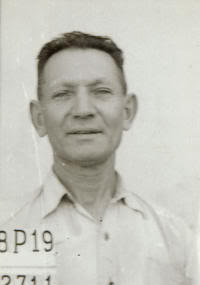Samuel Rappeport
| Russian spelling | Самуил Лазаревич Раппепорт |
|---|---|
| Born | 8.07.1890 |
| Place | Nikopol, Ukraine |
| Ethnic origin | Jewish |
| Religion | Jewish |
| Father | Lazarus Rappeport |
| Mother | Gally Breckler |
| Family | Wife Clara Dabscheek, married 1925 |
| Contacts | Brother [Lionel Rappeport](../RappeportL) |
| Arrived at Australia |
from Nikopol, Ukraine on 17.10.1904 per Stuttgart disembarked at Fremantle, WA |
| Residence before enlistment | Perth |
| Occupation | boot maker |
| Naturalisation | 1913 |
| Residence after the war | Perth, Mount Lawley, WA |
| Died | 4.09.1946 Perth |
Service #1
| Service number | 2559 |
|---|---|
| Enlisted | 23.05.1916 |
| Place of enlistment | Melbourne |
| Unit | 43rd Battalion |
| Rank | Private |
| Place | Western Front, 1917-1918 |
| Casualties | WIA (gassed) 1918 |
| Final fate | RTA 10.12.1918 |
| Discharged | 7.03.1919, MU |
Service #2 – WWII
| Service number | W242711 |
|---|---|
| Enlisted | 21.08.1940 |
| Place of enlistment | Clatemont, WA |
| Unit | 10 GB, Y Coy |
| Rank | Private |
| Discharged | 24.03.1944 |
Materials
Digitised naturalisation (NAA)
Digitised WWI service records (NAA)
Digitised Embarkation roll entry (AWM)
Personal case file (NAA)
Pension file (NAA)
Diditised Intelligence report (NAA)
Assistance and medical file 1 2(NAA)
Digitised WWII service records (NAA)
Family tree on Ancestry.com
Blog article
Newspaper articles
Pedestrian hurt. - West Australian, 30 August 1946, p. 14.
Fatal injuries. - West Australian, 5 September 1946, p. 9.
From Russian Anzacs in Australian History:
The Lakovsky, Lebovich and Rappeport families from southern Russia were among those that did continue with their small businesses in Australia. They came to Western Australia at the end of the 19th century and their sons would grow up just like other ordinary Australian city boys -- with the same pursuits and interests, and undergoing the same military training compulsory for Australian boys at the time. The difference for these Jewish boys was that, in Australia, they had the benefits of a better start in life, and a better general education, than would have been their lot in Russia. The question of their identity was probably of little concern for most of this younger generation: for them, Russianness and Jewishness were already giving way to a sense of being Australian -- or being 'British'.
Gallery

Samuel Rappeport
NAA, B884 (WWII service records)
 Russian Anzacs
Russian Anzacs